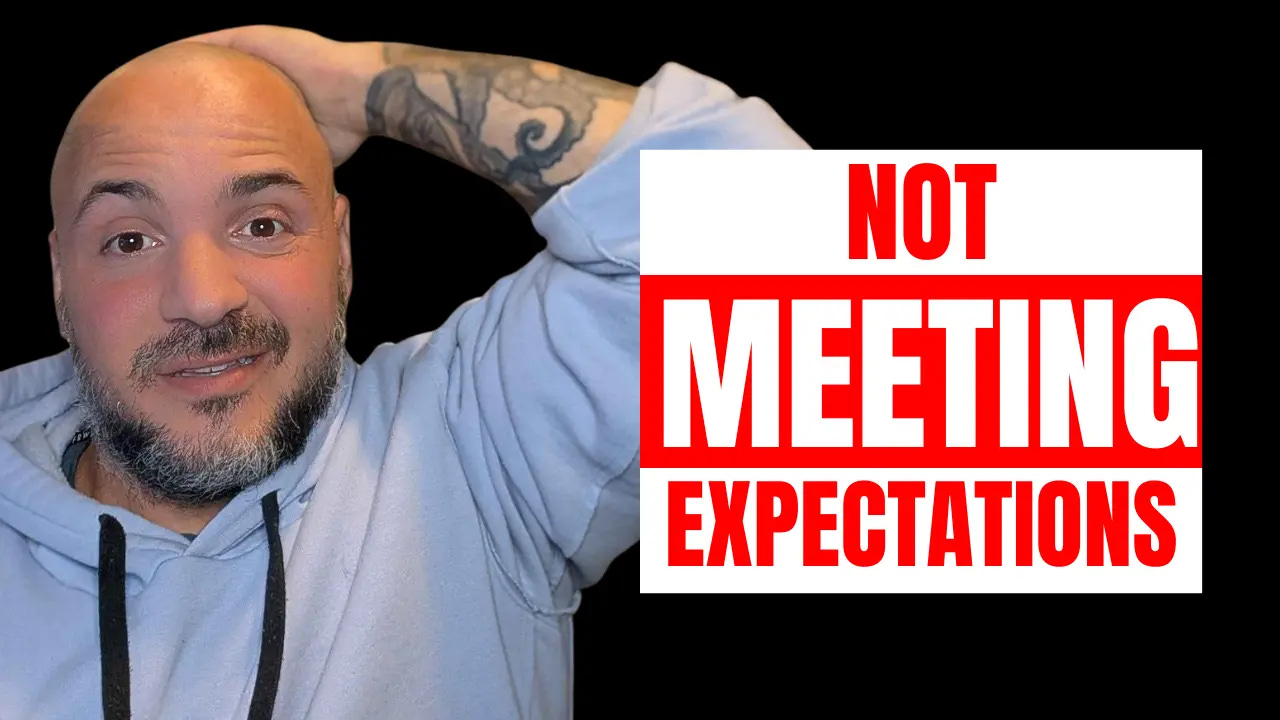Dealing With Underperforming Team Members
Dev Leader Weekly 111
TL; DR:
Act with empathy and curiosity
Generally people are not malicious
No livestream this week, sorry!
When Teammates Stop Pulling Their Weight
Every engineer who has worked on a real team has felt it at some point. That slow, sinking realization that someone on the team isn’t delivering.
You see tickets lagging behind.
Pull requests sit untouched until someone else jumps in.
Deadlines slip, retros feel tense, and suddenly, the whole sprint feels heavier than it should.
It’s uncomfortable, frustrating, and let’s be honest here... it can be a bit scary. When a teammate consistently underperforms, it doesn’t just impact velocity. It eats away at trust.
So what do you do when it happens? Keep on readin’, and make sure to check out this Code Commute video where I discuss it further:
Slow Down Your Judgment
The worst thing you can do is assume malice. Realistically, it’s quite rare that people in the workplace have malicious intent. It’s also quite rare that people are just lazy -- there’s likely more going on than what you see on the surface.
You don’t know what’s happening behind the scenes.
They could be burned out.
They could be caring for a sick family member.
They could be struggling silently with a part of the system no one ever explained to them.
As an engineer, your instinct is to fix problems fast -- trying to get to the root cause. But I’d highly recommend that you start with empathy and curiosity.
Actionable tip:
Before you make it a conversation about performance, make it a conversation about context. Ask questions like:
“Is there anything in the backlog that feels unclear or overwhelming?”
“Are there blockers I might not be seeing?”
You’ll learn a lot by listening, and you’ll show respect in the process.
When You Talk to Your Manager
As a manager, I strive to try and understand how things are going for all of my team members. But here’s the truth: your manager might not know. If you’re noticing consistent underperformance and they aren’t, that can be a signal gap -- one that you can help close.
But how you raise it matters. It doesn’t necessarily have to put the focus on an individual.
Targeted version:
“Alex isn’t doing any work. They’re dragging us down.”
Alternate version:
“I’m worried about our throughput. The last few sprints have been uneven, and I think part of it might be that some tasks are consistently landing back on the same people. Can we look at how we’re distributing work and whether everyone has the support they need?”
See the difference? The second version keeps the focus on outcomes, not blame.
Actionable tip:
If you need to raise the issue again, talk about impact, not individuals. Instead of “nothing’s changed with Alex,” try:
“I’m noticing the team’s still struggling to hit sprint goals. I’d like to understand what we’re doing to rebalance or support people.”
You’re surfacing the problem without turning it into gossip. This is especially important if you’re talking within the team with other team members.
It’s also worth noting that there is a path to escalation where being more targeted can be beneficial, but I would still recommend not putting blame on others. If you’re raising it with your manager, try to focus on how to get help for an individual, not blaming them.
(Note: Sorry if you are reading this and your name is Alex!)
The Manager’s Dilemma
If you’re managing, this is even harder.
You want to believe in people.
You don’t want to humiliate or embarrass anyone.
You don’t want to start a performance process too soon.
... But you also have a responsibility to the rest of the team.
Here’s the mindset that’s helped me: Your goal isn’t to “weed out bad performers.” It’s to understand whether the gap is a skill gap, a clarity gap, or a motivation gap.
You can coach skill.
You can fix clarity.
You can’t fake motivation. At least not for long.
Actionable tip:
When you’re working with someone who’s behind, make the plan concrete:
Define what “improvement” means.
Set timelines that are realistic but firm.
Give them visible support and feedback regularly.
Get them to confirm their understanding of the path forward.
If things don’t improve, you’ll know you tried in good faith and not just avoided a difficult conversation.
What Everyone Else Sees
Even if you handle it well, the rest of the team is watching. That’s what makes these situations tricky.
When underperformance drags on unchecked, people lose trust. Not just in the individual with the performance challenges, but in leadership.
It sounds dramatic, but it’s true. When engineers start to think “nothing changes no matter how much I care,” that’s when culture takes a hit. It’s further compounded when it looks like a manager is not taking action -- if they don’t care, then why should I?!
This can lead to situations where:
People quietly detach.
They stop speaking up.
Your team stops pushing for quality.
By the time you notice? The damage to the culture has already happened.
Actionable tip:
Protect psychological safety in both directions.
Reassure your high performers that you see their effort.
Reassure struggling performers that you see their potential.
Remember to try and take action to help team members early, driving clarity on the path forward.
The Hard Truth About Letting Go
As a manager, sometimes we’ll coach, support, clarify, and check in, but things still won’t turn around. When that happens, you have to make the hard call.
If you’ve genuinely tried every reasonable path and there’s no progress, letting someone go is the right thing to do. It can give them an opportunity to do better work in a different environment, and it also helps the team.
For me, this is always a super hard thing to do. The only way I sleep at night after that decision is if I can say, “I did everything I could”. If I am envisioning that difficult conversation and it doesn’t feel like I have exhausted my options, then I often find myself investing in different ways to help the individual.
I have, on several occasions, had individuals later on thank me for trying and they have found themselves thriving in different environments. I remind myself of this because what feels like a potentially cruel decision in the moment can be something that helps someone refocus in their career.
The Bigger Picture
Teams often don’t crumble because of one underperformer. However, the culture of a team can take a hit if there’s no addressing the situation. When people stop caring, stop trusting, and stop believing that their feedback matters--that’s when it becomes really difficult to turn things around.
So speak up early.
Offer help that scales.
Be factual, not emotional.
If you’re surfacing challenges to your manager, start by focusing on outcomes and not an individual. When you’re the one leading, handle it in a way that the rest of the team can look at and say, “Yeah. That’s how I’d want to be treated too.”
These situations are never easy for anyone involved, but they are real situations that come up in teams. Remember that it’s extremely rare that your colleagues are malicious -- they are often trying their best, but things aren’t always as straightforward as they seem on the surface.
Join me and other software engineers in the private Discord community!
Remember to check out my courses, including this awesome discounted bundle for C# developers:
As always, thanks so much for your support! I hope you enjoyed this issue, and I’ll see you next week.
Nick “Dev Leader” Cosentino
social@devleader.ca
Socials:
– Blog
– Dev Leader YouTube
– Follow on LinkedIn
– Dev Leader Instagram
P.S. If you enjoyed this newsletter, consider sharing it with your fellow developers!



